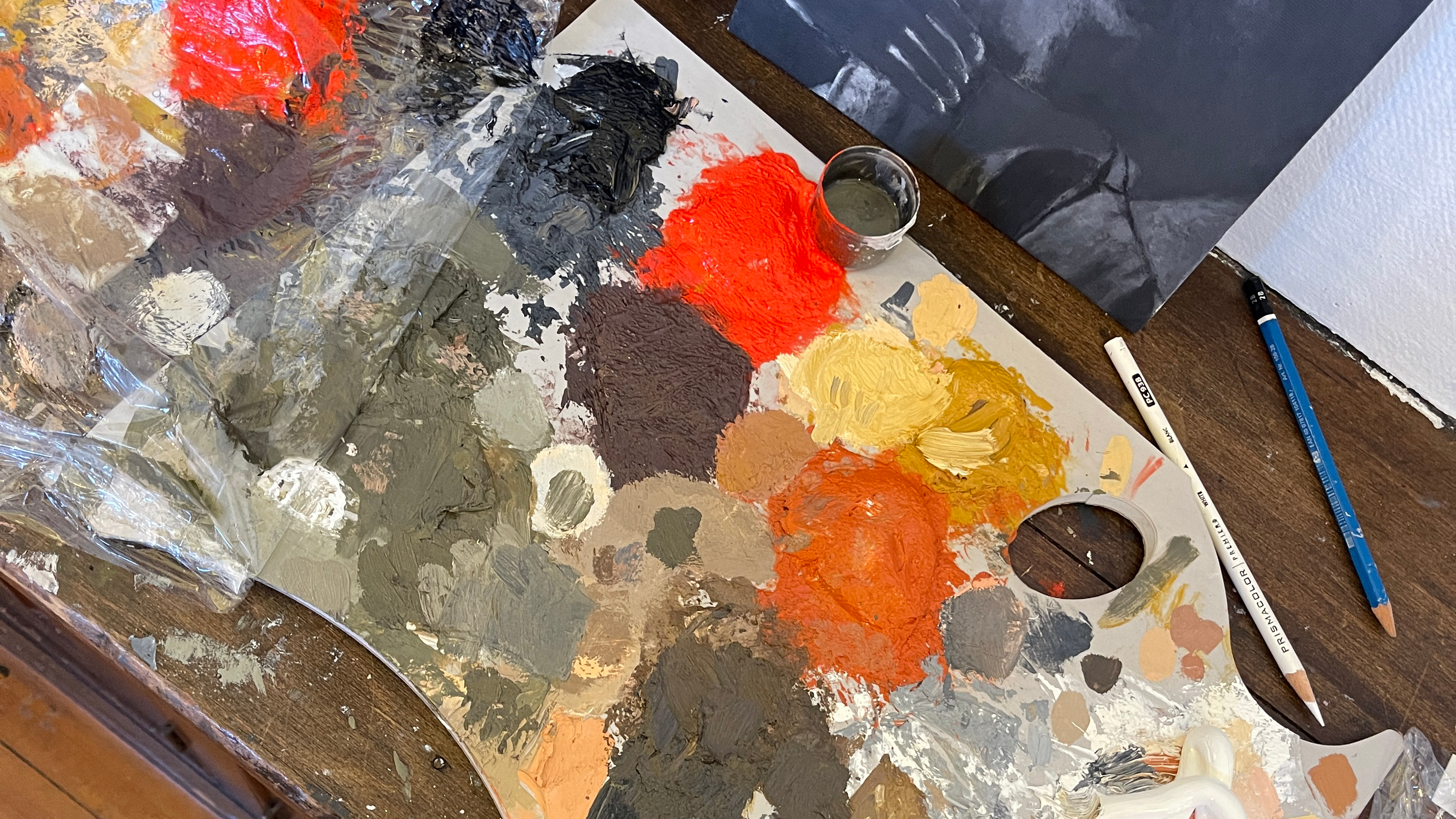
The Visual Arts
Visual arts classes are supportive process-oriented environments where students think creatively, work collaboratively, make connections, and take risks.
Courses are taught in a variety of studios through a number of electives that build skills and invite exploration through a range of offerings. With no studio fees, few prerequisites, and opportunities for experiential learning through field trips and artist collaborations, students are invited to explore themselves, each other, and the world around them through the arts.
Drawing, Painting, & Ceramics
The Drawing & Painting curriculum at Westover centers student choice and imaginative exploration by developing skills in observational drawing, by building community through class critique, and by experiential learning through field trips and collaborations with local artists. Ceramics students are offered choice and voice in their creations, engage with local artists, and learn in a collaborative environment both from each other and from former students. Students learn skills through observation while exploring and developing what’s meaningful to them.
Photography
The photography curriculum encourages students to create work in response to world events with an emphasis on art as a creative agent for change and activism. Courses in darkroom, digital, and video photography are designed to encourage students to think creatively and critically while learning how to use a remarkable variety of photo imaging and video-making equipment.
Art History
The Arts & Culture designation is a critical study of creative expressions, thoughts, and aesthetic practices and theories in relation to social, political, rhetorical, and historical contexts. Courses explore ways of thinking, creating, believing, communicating, and being in a global, transnational world through a historically grounded approach. This writing intensive designation critically engages the visual culture of various parts of the contemporary and historical world through a variety of perspectives and subjects, including art history.
WISE/Arts
The WISE/Arts courses integrate the fields of science and engineering with the arts through real world application in order to extend, through collaboration and exchange, the scope of each discipline. WISE/Arts collaborations, while respecting each disciplinary framework, expands the methods and perspectives of WISE and Arts towards common project-based goals by valuing creative problem solving, visual perception and literacy, collaboration, visual documentation, communication and experiential learning. Through a student-centered model that emphasizes process and design-based thinking, WISE/Art courses provide opportunities for students to freely explore through an integrated doing of art and engineering.
Museum Internships
Westover offers two museum internship programs. In the Sonja Osborn Museum Studies (SOMSI) Program, students gain practical museum experience working with curators at Hill-Stead museum in Farmington, CT, and then bring that experience back to Westover through a project and symposium presentation. Students may also gain practical museum experience through an internship opportunity at the Mattatuck Museum in Waterbury, CT. These students travel to the museum several times a week to work with curators and educators on exhibitions and public programs.
The Schumacher Gallery
The Schumacher Gallery at Westover School facilitates dialogue between students, professional artists, and the community through challenging and approachable contemporary exhibitions. The gallery provides a space where viewers can make meaningful connections between artwork, curriculum, and culture. Through its three to four rotating exhibitions each year featuring professional and student artists in varying media, the gallery functions as a viewing and instructional space for an inquiring student body and the school's surrounding and varied communities. The gallery engages our exhibiting artists with the community in a variety of ways - from individual class collaborations to course collaborations to community-wide art projects and installations.